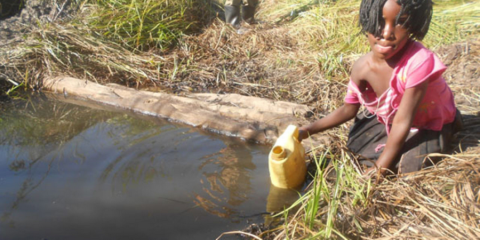
Hard work. In rural places, women are the core managers of domestic affairs and this implies that they have to run most of the chores. However, one thing remains hectic - collecting water.
From a water tank beside her house, Margaret Nakafu pulls a 10-litre jerrycan full of water for use in her kitchen 10 metres away. She leaves a basin filling that she picks minutes later to water her zero-grazed cow.
Nakafu, a widow living with her five biological daughters and three grandsons, is a resident of Nakisunga Village in Mukono District. She doesn’t only have access to clean and safe water for consumption in her household but water for her animals too. She was assisted by a water project working in the area, Women for Water Partnership.
Marita Nalwesiyo, a resident of Kasoga Village, Kakuuto Sub-county in Rakai District, on the other hand must walk two kilometres from her home to collect water for domestic consumption. For the long distance she covers carrying a 20-litre jerry can of water, Nalwesiyo cannot even imagine using some of the water to feed her animals. How could she when it is not even enough for her household? In Nalwesiyo’s area, water is a scarce commodity that every drop of it accounts as for instance does every note on the shillings ten thousand bundle.
Read the Original Article HERE (Click to Read).